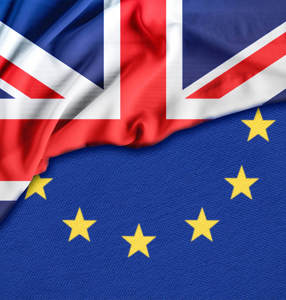- The CBI chevron_right
- Policy briefing: Brexit and EU negotiations
Policy briefing: Brexit and EU negotiations
Your January update on the latest in Brexit policy developments.
Goodbye Lord Frost and welcome Liz Truss
Last week, the Foreign Secretary, Liz Truss held her first set of talks with the EU’s Chief Negotiator Maroš Šefčovič following the resignation of Lord Frost at the end of last year. Truss taking up the Brexit brief could indicate a slight shift in direction for the government’s policy on Brexit this year. For example, Brexit is no longer seen as a cross-government priority – but as a foreign affairs issue. Whilst the talks did not lead to any concrete change, many commented on the warmer atmosphere between Truss and Šefčovič and there are hopes this will translate into progress in the negotiations.
The negotiations come against the backdrop of the government repeating its threat of triggering Article 16 if an agreement with the EU on the Northern Ireland Protocol is not reached. Triggering Article 16 would suspend parts of the Protocol, and there are fears it could lead to a wider retaliation between the UK and EU involving tariffs and tougher checks on goods.
Currently it’s unclear what Lord Frost’s resignation will mean for the UK’s longer-term Brexit strategy. In his resignation letter, Frost re-iterated his support for a ”Singapore-on-Thames” style Brexit with “a lightly regulated, low-tax, entrepreneurial economy.” The CBI often hears from its members that the challenges posed by the UK creating different rules to the EU’s can lead to added costs, and risks investment into the UK.
New Year Custom Changes
Away from the politics, businesses have been working hard to prepare for the end of various grace periods. From January 1 firms need to fulfil pre-notification requirements for animal and plant-based goods (known as SPS), and from July 1 these goods will have to go through Border Control Posts. Full customs declarations and controls are now in place and importers must hold a supplier’s declaration when issuing a statement on Rules of Origin.
Larger companies are generally more prepared than smaller ones for these changes, and so businesses welcome the government’s prioritisation of flow over compliance to avoid issues at the border. No wide-spread disruption has yet been felt, but compliance could become a challenge further down the road.
Launch of the UK-Swiss Bilateral Trade and Investment Council
The CBI have joined forces with economiesuisse to create a Bilateral Trade and Investment Council which will provide a platform for dialogue between policy makers and businesses in the UK and Switzerland. With the Free Trade Agreement (FTA) between the two countries being re-opened, the Council is aimed at improving the deal. The FTA can further build upon areas of strength for both economies, including services and digital trade.
The creation of the Council has been welcomed by both the UK and Swiss governments. Ranil Jayawardena, International Trade Minister, said that the creation of the Council would help to boost trade links between the UK and Switzerland by “helping drive jobs, growth and economic prosperity across Britain”.
Trade in Services Council
The Department for International Trade (DIT) welcomed the CBI’s initiative to create a Trade in Services Council (TISC) as part of the government’s wider exports strategy. Despite 80% of jobs in the UK being within the services sector, much of the emphasis of trade policy is often on goods trade.
The TISC will be industry-led and will seek to build on the work of services-related trade bodies to make the UK even more competitive as a world-leader in global services trade. The Council will have 20 members and meet twice a year.
Want to get involved?
Applications are still open for members who wish to apply. Find out more here.

Visit the Transition Hub









